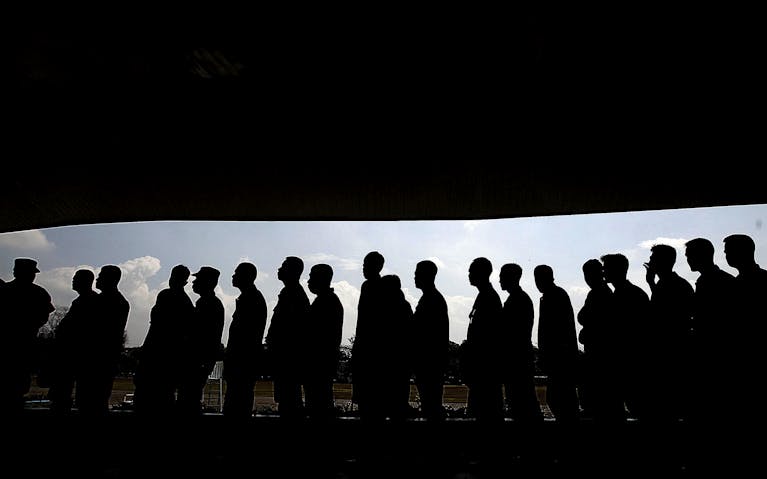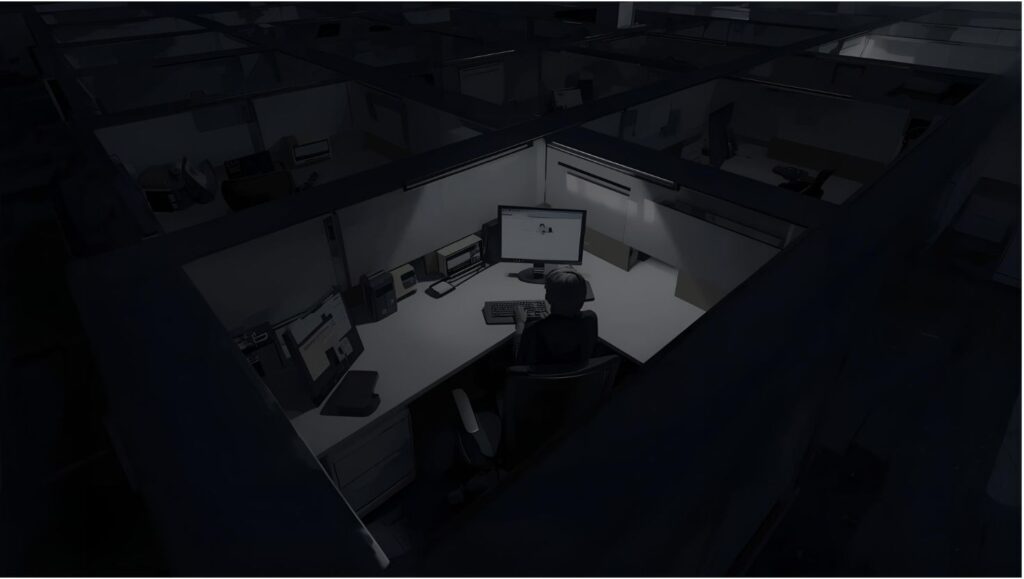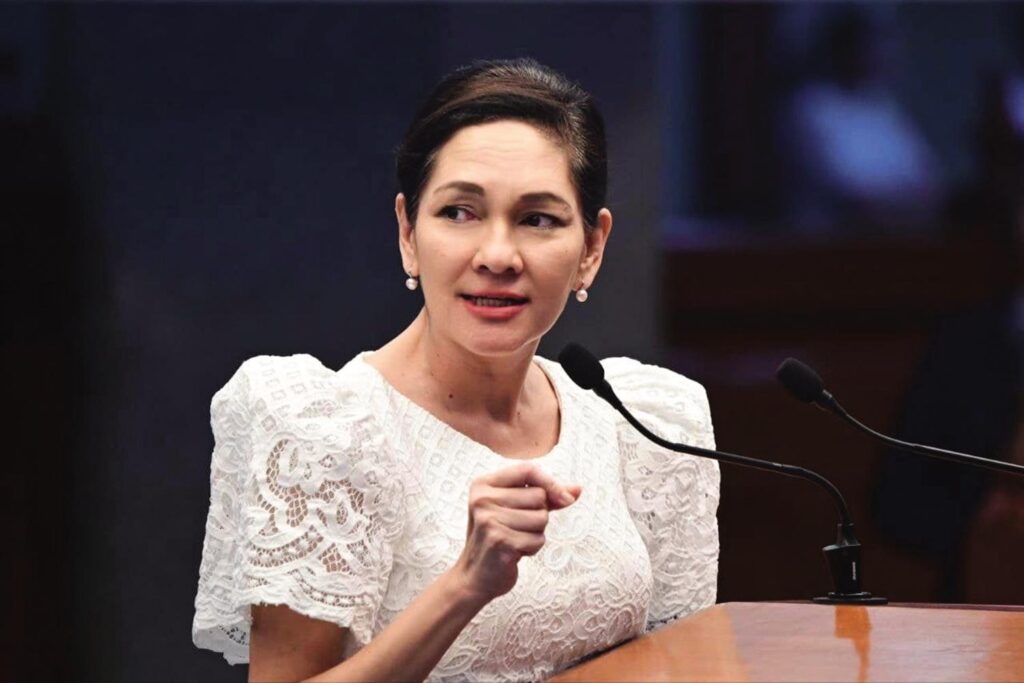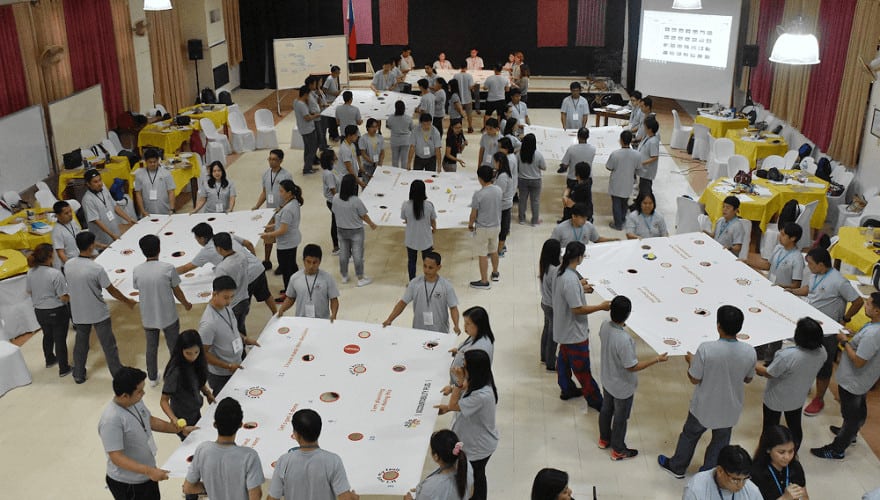“Delulu is the only solulu.”
It started as a joke online — a funny way to say, “Bahala na, let’s pretend everything’s fine.” We used it for love life, for grades, for work. But somewhere along the way, we started living it as a country.
Once upon a time — not too long ago — the Philippines was actually moving up. The economy was growing, jobs were rising, investors were coming in. For the first time in years, we were being noticed for the right reasons.
Then came a man who said he alone could fix everything. No one else, just him. He shouted louder than the facts, and we mistook volume for vision. Trolls filled our screens, fake news drowned real numbers, and we cheered like it was a new kind of leadership.
And just like that, we went from “We can do this together” to “He will do it for us.”
That’s how delulu became national policy. And when delusion replaces direction, the joke stops being funny.
When We Traded Progress for Performance
There was a time when the Philippines was finally getting its act together. Roads were being built, classrooms were opening, and our economy was growing faster than most of our neighbors. We were far from perfect, but the direction was clear — pataas. Investors were coming in. Credit ratings were improving. Headlines abroad were actually saying, “The Philippines is the next Asian tiger.”
People were starting to believe that hard work, not magic, could make things better.
Then, out of nowhere, came a new showman — loud, angry, funny in a dangerous kind of way. He said, “Everything before me is failure. Ako lang ang solusyon.” It was like watching someone grab the mic at a graduation ceremony and shout, “Lahat ng ginawa niyo, mali!”
And instead of walking out, we clapped.
Because it felt good. He said what many were thinking but never said out loud. He looked real, rough, “for the people.” Never mind the facts — his words sounded braver than statistics.
That was the beginning of what I call The Delulu Moment — when performance replaced progress, when we chose a strong story over steady work.
Suddenly, experience didn’t matter. Experts were “elitists.” Journalists were “enemies.” Data was “drama.” And anyone who asked questions was accused of being “against the people.”
We didn’t notice it right away, but something quietly broke: our relationship with truth.
Because once a nation starts cheering louder for drama than for data, the next act writes itself — and it’s usually a tragedy disguised as entertainment.
The Delulu Playbook: How a Nation Got Fooled
We Filipinos have short memories. We move on fast — sometimes too fast. A scandal today is a meme tomorrow, and by next week, we’re dancing to it on TikTok. That’s how delulu thrives: it counts on us to forget.
But history doesn’t disappear just because we scroll past it. So before another loudmouth promises another shortcut to salvation, let’s open the old playbook. Because everything that happened — the rise, the roar, the ruin — it followed a script.
And like any good magic show, it began with misdirection.
Trick 1: “Transparency, Pero Secret”
Remember the promise? “Government will be clean and open.” Walang itatago.
People cheered. Finally, someone who wasn’t afraid of sunlight. The idea of transparency felt refreshing — until we realized that the sunlight was only for show.
When citizens tried to request the leader’s Statement of Assets, Liabilities, and Net Worth (SALN), they were told, “Sorry, bawal.” Why? Because a new Ombudsman — handpicked and loyal — quietly issued a memo that made SALNs almost impossible to publish. It was like locking the windows and calling it air-conditioning.
The Freedom of Information (FOI) order that was promised? It came with pages of exceptions. You could file a request, but you’d likely receive nothing. Journalists who asked questions were red-tagged, insulted, or worse, threatened.
Transparency became a prop, not a practice. It was government in costume — smiling for the cameras while hiding the receipts.
Reflection: When those in power start calling secrecy “security,” that’s not leadership. That’s hiding in plain sight.1
Trick 2: “Build, Build, Blurred”
Next trick: the grand illusion of progress.
We were told there would be a “Golden Age of Infrastructure.” Bridges, roads, airports — “projects na hindi niyo pa nakikita sa kasaysayan.”
And true enough, we saw bridges. On PowerPoint. We saw roads — on ribbon-cuttings. We saw railways — on posters that said “Coming Soon.”
Billions were poured into “Build, Build, Build,” but audits later revealed the truth: ghost projects, overpriced flood-control contracts, and half-baked constructions that looked great on paper and terrible in person. The Commission on Audit flagged billions in questionable spending.
Still, the photo-ops never stopped. Politicians in hard hats smiled beside bulldozers, pointing at holes in the ground like they were monuments. It was a golden age — for tarpaulins.
Infrastructure became Instagram content. The “Golden Age” turned into “Build, Build, Blurred.”
Reflection: You know a delulu government when it finishes more hashtags than highways.
Trick 3: “Order, Through Fear”
Then came the biggest illusion: peace through fear.
“Give me six months,” he said, “and I will end crime.” Finally, someone brave! someone tough! The people cheered again.
And at first, it looked like order. Streets seemed quieter. But that quiet came with blood in the gutters and fear in people’s eyes. Thousands were killed in so-called “operations.” Most were poor. Many never even faced a trial.
Families whispered. Journalists were silenced. Even ordinary citizens stopped talking politics out of fear. “Baka mapag-initan.”
The promise was safety. The price was silence. The delulu worked because fear feels like discipline when you’re desperate for control.
Years later, crime still exists, corruption still thrives, and drug syndicates are still alive — only now, they’ve learned to hide better than ever.
Reflection: Real peace is built on justice. Fake peace just hides the noise.
Trick 4: “Rice at 15, Traffic Gone by Christmas”
If you remember this one, you probably laughed — or cried — at the grocery aisle. There was a time when the promise sounded magical: “Ang bigas, kinse pesos, o mas mababa pa!” People clapped. Mothers smiled. Finally, relief from rising prices.
But rice never hit fifteen pesos. It didn’t even wave at twenty. Instead, prices doubled. Farmers protested. The government blamed “global markets.” But the truth was simpler: there was no plan — just punchlines.2
And traffic? Remember the confident claim, “Give me a year, and I’ll solve EDSA.” We gave not one year but six. EDSA still looked the same, only with more buses and broken promises.
“Traffic will vanish,” they said. Instead, patience did. Commuters kept suffering while officials shrugged.
Agriculture was promised a “revolution.” We expected research, innovation, support. What we got were photo-ops with sacks of rice and unqualified appointees managing billion-peso agencies.
Reflection: We were promised rice at fifteen pesos. We ended up feeding on excuses.
Trick 5: “Mindanao Rising… or Just Davao?”
Another emotional promise: “This time, Mindanao will rise.” For decades, Mindanao waited for peace, roads, and real progress. It finally sounded like its turn.
But when the budgets rolled in, something strange happened. A huge chunk went to one city — not the poorest, not the most in need, but the one that shared a hometown with the leader. Roads widened, airports improved, and shiny new buildings appeared there first.
Meanwhile, other provinces in Mindanao — the ones that truly needed help — waited. And waited.
Federalism, the so-called cure for unequal progress, quietly disappeared from the agenda. What replaced it was favoritism, wrapped in patriotism.
Reflection: Mindanao rose, yes — but only one city got the elevator key.
Trick 6: “Revolution Without Results”
For years, people were told, “We need a revolution. A real change.” It sounded bold. Federalism. Charter change. A new constitution that would finally fix everything.
Meetings were held. Committees formed. Drafts written. Speeches delivered. And then—nothing.
No new structure, no new system, no new accountability. Only endless talk about “change,” used to distract from the lack of it.
Revolution became a marketing slogan. The word lost its weight. And by the time people noticed, the “new” system looked suspiciously like the old one—just with more loyal faces in higher seats.
Reflection: We promised revolution but settled for reruns.
Trick 7: “Trolls as Truth-Tellers”
Perhaps the most dangerous trick of all — making lies louder than truth.
During those years, trolls became the new teachers. Thousands of fake accounts flooded social media. Lies repeated often enough started sounding like gospel truth. Anyone who asked for evidence was called “biased,” “bayaran,” or worse, “kalaban ng bayan.”
Facts were optional; feelings ruled. The comment section became the classroom, and the syllabus was rage.
When journalists uncovered corruption, the trolls attacked them instead of the guilty. When critics asked for accountability, fake pages spread new distractions. Memes replaced data.
The line between opinion and deception blurred until no one knew what to believe. That’s the genius of the delulu — it doesn’t need to convince you, just confuse you.
Reflection: When trolls become truth-tellers, the nation fails its final exam.
The Curtain Call: The Price of Believing
Every trick in the Delulu Playbook worked because we let it. We wanted to believe in heroes instead of systems, shortcuts instead of work, noise instead of nuance.
We laughed at the memes, shared the quotes, defended the lies. And by the time the spell broke, progress had slowed, corruption returned, and truth itself had been devalued.
The show went on for years — part comedy, part tragedy — until even the laughter felt tired.
Because that’s the secret of every delulu: it doesn’t collapse all at once. It fades quietly while we’re busy scrolling.
Reflection: We weren’t just fooled. We were entertained into forgetting.
Why We Fell for the Delulu
Filipinos are not foolish. We’re hopeful — maybe too hopeful.
When you’ve lived through decades of corruption, brownouts, floods, traffic, and the same faces promising change, you start dreaming of a shortcut. Something — or someone — who can fix it fast.
That’s how the delulu slipped in.
The showman didn’t just sell policies; he sold feelings. He made anger sound like courage, rudeness sound like honesty, and violence sound like discipline. For a tired people, it felt refreshing — finally, someone “real.”
But that’s how delusion works. It gives you emotion instead of evidence. It replaces process with personality. It turns leadership into entertainment and followers into a fan club.
We wanted results without responsibility. We wanted heroes instead of habits. We wanted to believe, even when the facts didn’t add up.
Social media made it easier. Every meme, every troll post, every video was designed to make us feel right, not be right. And so, even when the lies were obvious, we scrolled past them with a sigh: “At least he’s doing something.”
That’s the Hope Shortcut — our national tendency to choose comfort over clarity, and charisma over competence.
It’s human. It’s Filipino. But it’s also how we keep losing ground.
Because the truth is, there’s no shortcut to nation-building. Hope isn’t a strategy — it’s a starting line. And the only real solulu begins when we stop looking for saviors and start saving what’s real: our values, our memory, and our voice.
The Price of Pretending
Every delulu has a bill. And ours came with interest.
At first, we thought the cost was only political — one man’s power, one party’s win. But the damage went deeper than headlines. It seeped into our systems, our culture, even our sense of truth.
The economy slowed. Investors left quietly. The corruption index worsened. The world stopped calling the Philippines “rising” and started calling us “unstable.”
Press freedom dropped to its lowest rank in decades. Journalists were harassed, some arrested, some silenced forever. Even ordinary people learned to whisper their opinions, afraid of being tagged, trolled, or targeted.
Meanwhile, billions vanished in ghost projects. Floods worsened in places where “flood control” had already been “completed.” Budgets ballooned, but delivery shrank. It was like paying for a feast and receiving crumbs.
And yet the hardest loss wasn’t money — it was memory. We forgot what normal, honest governance looked like. We began to call cruelty “strength,” chaos “change,” and propaganda “patriotism.”
That’s the real price of pretending: not just broken roads or empty rice sacks, but broken trust.
Because when a nation learns to laugh at lies, truth stops standing a chance. And when truth becomes optional, progress becomes impossible.
The delulu didn’t just fool us — it rewired us. It taught us to expect less, to believe less, and to doubt those who dare to ask for better.
From Delulu to Solulu
So how do we fix this?
Not with another strongman, not with another slogan, and definitely not with another delulu. The only real solulu starts when we rebuild our relationship with truth.
First, relearn to ask brave questions. The most patriotic word is “Bakit?” — because it demands clarity before loyalty. Second, value systems over saviors. Progress isn’t built by personalities; it’s built by processes that work, even when no one’s watching. Third, practice memory. Keep receipts. Remember what worked, who lied, and what it cost us.
Our nation doesn’t need another miracle. It needs maturity. Because delulu may make us laugh — but solulu makes us last.
And the next time someone shouts, “Ako lang ang solusyon!” we should smile, shake our heads, and say, “Hindi. Tayo ang solulu.”
Epilogue — When the Joke Stops Being Funny
“Delulu is the only solulu.” We still throw it around like a punchline — when life gets messy, when traffic won’t move, when politics feels hopeless. It’s our way of saying, “Let’s laugh before we cry.”
But somewhere along the way, the joke stopped being funny. We used it so much that it became a national coping mechanism — a soft blanket to cover hard truths. We joked about delusion while living inside it.
And that’s the danger. When we keep laughing at lies, we forget how to recognize them. When we celebrate strongmen more than strong systems, we end up clapping for our own cage.
The truth is, the Philippines doesn’t need more delulu — it needs clarity, courage, and collective memory.
Delulu may distract us for a moment. But solulu — the real one — demands we wake up, remember, and rebuild.
Because a nation that keeps joking about its wounds will never heal. And a people that remembers can’t be fooled the same way twice.
Footnote
If you want Filipino values to show up as real behavior at work…
Let’s turn it into a culture shift experience.
→ Shift Experiences









